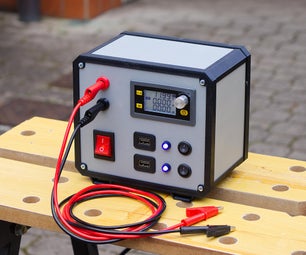Introduction: Automated Answering System V1.0
For a long time I've been wanting a system similar to the one that the phone company for their customer service line. In other words, I want people who call me to receive a recorded message and then be placed on hold forever with no real hope of their call being answered.
This is the first iteration towards the phone system of which I speak and serves as a proof of concept as I continue to develop it to its utmost potential.
Future versions of this system will have the following features:
1. A touch tone controlled start menu
2. More intelligent pre-recorded message selection
3. A larger music selection
4. An operator function which will play a pre-recorded message and then disconnect the call
5. Presentable project casing
Step 1: Go Get Stuff
You will need:
1) A bluetooth headset
2) An 1/8" audio jack
3) A 100K potentiometer
4) Hookup Wire
5) An 1/8" male to male audio cable
6) A computer microphone
7) Garage Band (or similar)
Tools:
1) Diagonal cutters
2) A soldering iron and solder
3) A multimeter
4) A hot glue gun
5) A marker
(Please note that some of the links on this page contain affiliate links. This does not change the cost of the item for you. I reinvest whatever proceeds I receive into making new projects.)
Step 2: Nurse! Scalpel!
With your diagonal cutters, carefully start cutting away the plastic casing of your headset to expose the microphone.
Step 3: Testing... Testing...
With your multimeter, figure out which pin on the microphone is power and which pin is ground. Place a mark on the board next to the ground pin with your marker.
Step 4: Operate
Desolder or forcibly detach the microphone (without damaging the rest of the circuit board).
Step 5: Attach Wires
Wrap the a red and black wire around the bluetooth headset and then glue it in place making certain to leave enough room to solder the ends of the wires to the bluetooth microphone terminals.
Attach a red wire to the terminal that the positive end of the microphone was attached to and a black wire to the terminal that the negative end was attached to.
Step 6: Resist
Add the 100K potentiometer in series with the red wire attached to the headset such that the middle pin is attached to the red wire and either of the outside pins is connected to the audio tab on the music jack.
In case you were wondering, the audio tab is the tab that is not physically connected to the large metal connector in the back of the jack. That is the ground pin.
Step 7: That's a Fact Jack
Connect the black wire to the ground terminal on your 1/8" mono jack.
Step 8: Record Music
It's important to record your own music. This will be sure to make the experience more personal and more enjoyable for everyone.
To record music, open garage band and create a new track for a real instrument. Plug in your microphone (if one is not built into your computer), hit record and start making music.
For inspiration visit Schnoize's official site.
Step 9: Please Hold
You need to get a female to talk in a pleasant voice and say the following:
"The expected wait time to talk to (your name here) is (slight pause) minutes. Please continue to hold and he will answer your call in the order in which it was received."
Where it says "(your name here)" the person should obviously state your name. And where it says "(slight pause)" you will be inserting a number spoken in a different voice in the next step.
Step 10: Record Numbers
It is important that the numbers spoken for the wait time should seem computer generated. In your best computer voice or using a robot voice modulator slowly count aloud from 5 to 45.
The reason for this range of numbers is that you don't want people to think they may be talking to you with 5 minutes nor do you want people to believe they will be on hold more than 45.
Step 11: Smash It Up
Randomly insert numbers into the "Please Hold" message into the space where your voice actor paused.
To have a smoother sounding message, slightly overlap the silent parts of the audio tracks and have one rapidly fade out when the other is rapidly fading in.
Once you have inserted wait times into a number of "Please Hold" messages, insert the please hold message every 30 - 45 seconds into your music track using the rapid fade-in and fade-out technique just described.
Below you will find an mp3 of my 7-minute hold message loop.
Step 12: Loopy
Place your audio track onto an audio player and set it to loop infinitely.
Step 13: Audio Out
Plug one end of your 1/8" audio cable into your music player and the other end into the audio jack connected to the bluetooth headset.
Step 14: Turn It On
Turn on the bluetooth headset and make certain that the potentiometer is providing 100K worth of resistance to the circuit.
Step 15: Setup Phone
Setup phone to auto-answer with the bluetooth headset when it rings.
Step 16: Test It!
Starting is as simple as hitting play. Call your phone using another line and you probably should hear little to nothing on the line. Very slowly turn the potentiometer until your start to hear music at a reasonable level. Keep your potentiometer at this setting from keeping the bluetooth headset from being shorted.
Step 17: Never Answer Your Phone Again
Now, if anyone calls you, they will get your answering system and be forced to listen to your hold message forever! Enjoy your new carefree life cut off from the outside world.

Did you find this useful, fun, or entertaining?
Follow @madeineuphoria to see my latest projects.














